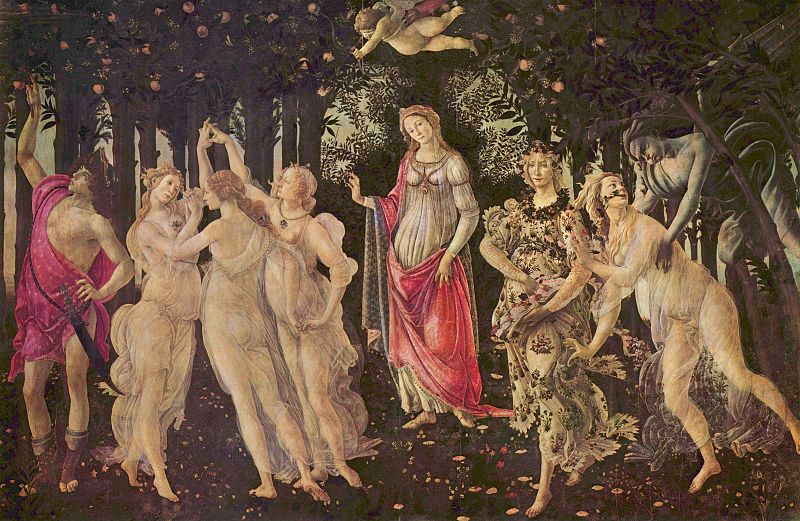 Primavera, by Mary Jane Beaufrand. March 2008.
Primavera, by Mary Jane Beaufrand. March 2008.I have to admit that I didn't pick up this ARC the first time I saw it. I read the book description, and thought it looked moderately interesting, but because I was taking so many others home with me (that, by the way, is the real reason I'm always ready to clean up the ARCs in the back room), I figured I'd leave it for someone else to take a look at.
And then I saw the title pop up on one of my favorite bloggers' lists of anticipated reads. And I brought it home, figuring it would be a quick read. Quick, yes, but mostly because I couldn't put it down.
Lorenza, called Flora, is the younger daughter of the Pazzi, one of the lesser noble families in Medici-controlled 15th-century Florence. She's largely ignored by her status-conscious parents, who want to secure their position by marrying the beautiful daughter, Domenica, to Giuliano de Medici.
And when that fails, they launch the Pazzi conspiracy, an assassination attempt against Giuliano and his brother Lorenzo. Flora, naturally, ends up in the middle of the action, although she's not part of her family's conspiracy.
She's accompanied by Emilio, a poor boy from the country who moves from junior guardsman to confidante to something more. After the attack, Emilio goes in search of the army that was expected to support the coup d'etat, while Flora goes to defend the Pazzi compound.
What Flora does for the Medici brothers is enough to make the Medici guards deliberately overlook her as they round up everyone associated with the Pazzi family. She remains free to watch her father drawn and quartered (I wonder if Beaufrand has been able to get that image out of her head after describing it so vividly), her brothers' bodies displayed to the public, and people with only tenuous connections to the Pazzi punished for her family's crime.
The book's title comes from Botticelli's painting by the same name, which makes an appearance in the final pages. Botticelli is a minor figure early in the book - he visits the Pazzi house to paint Domenica's portrait, and has time to make conversation with Flora.
Thanks to Primavera, I think it's time to reread The Birth of Venus. It's set about fifteen years later, with many of the same historical figures.


No comments:
Post a Comment